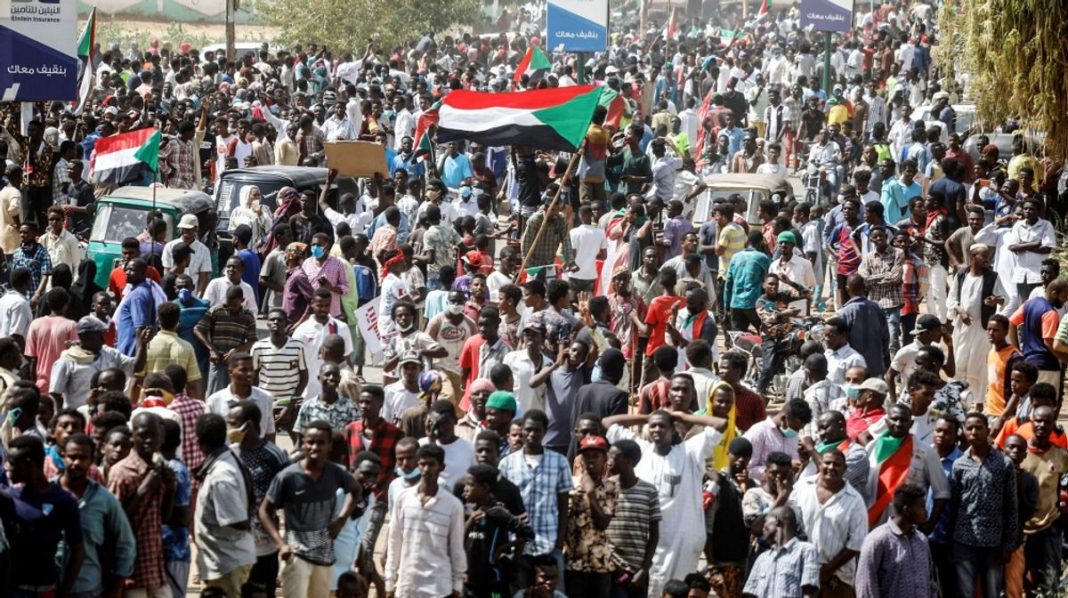Sudan is to allow non-Muslims to drink alcohol for the first time in decades and has scrapped laws that had made leaving Islam potentially punishable by death, the justice minister said. Sudan passes reforms which are set to transform the beleaguered nation after years of dictatorship.
The raft of amendments comes a year after Islamist dictator Omar al-Bashir was toppled following mass protests against his three-decade rule.
Sudan passes reforms: alcohol allowed
Sudan now “allows non-Muslims to consume alcohol on the condition it doesn’t disturb the peace and they don’t do so in public,” Justice Minister Nasredeen Abdulbari said in an interview Saturday evening on state television.
While Islamic tradition forbids the faithful from drinking, Muslim-majority Sudan has a significant Christian minority.
REFORMS IN SUDAN
1. For the first time in 30 years Non Muslims will be allowed to consume alcohol.
2. Scrapping of apostasy law & public flogging.
3. Female Genital Mutilation banned.
4. Women will no longer need permission from a male relative to travel with their children.
— MUHAMMAD ONYANGO (@Moha001_Onyango) July 13, 2020
Abdulbari, part of an transitional government that took power after Bashir’s ouster, also announced that converting from Islam to another religion would be decriminalised.
Read more: How to Fight Alcohol Addiction during the Quarantine
Non-Muslims are now allowed to consume alcohol in private, however the ban on Muslim drinking remains, Mr Abdulbari told state TV.
Non-Muslims could still be punished if they are caught drinking with Muslims, the Sudan Tribune reports him as saying.
He explained that the government was trying to safeguard the rights of the country’s non-Muslims, who make up an estimated 3% of the population.
They are now allowed to drink, import and sell alcohol.
“We are keen to demolish any kind of discrimination that was enacted by the old regime and to move toward equality of citizenship and a democratic transformation,” he said.
Sudan decriminalises renunciation of Islam as religion
“No one has the right to accuse any person or group of being an infidel… this threatens the safety and security of society and leads to revenge killings,” he said.
Many Muslim-majority countries apply Islamic laws making leaving the faith punishable by death.
Read more: Justice for Sudan: International Criminal Court steps in
Bashir, who had enforced such rules after coming to power in an Islamist-backed 1989 coup, was toppled by the army following mass protests over the country’s worsening economic crisis.
Sudan scraps alcohol ban law for non-Muslims
KHARTOUM ( HALBEEG NEWS) – The Republic of Sudan has scrapped a law banning non-Muslims to drink alcohol.Non-Muslims make three percentages of the 42 million population.
The new reforms have also banned female genital mutila… pic.twitter.com/jH8Bao7r3T
— Halbeeg (@Halbeeg_News) July 13, 2020
Sudan’s transitional government, installed under a deal between protest leaders and the generals who took charge after Bashir’s ouster, has pursued a string of reforms including on Friday criminalising female genital mutilation.
Sudan passes reforms: omits Islam as a defining trait of state
A constitution adopted for the three-year transition period omits mention of Islam as a defining characteristic of the state.
Official figures say Christians represent only three percent of Sudan’s 40 million inhabitants, although Christian leaders say the real figure is much higher.
Human rights groups regularly condemned the toppled autocrat’s treatment of non-Muslims especially the Christian minority.
Read more: UNSC condemns Sudanese massacre and calls upon military rulers to resolve the crisis
Copts, Catholics, Anglicans and a number of other denominations are present in the country but Bashir’s Islamist regime had driven many of them underground.
In 2014 a Sudanese woman was sentenced to death for converting from Islam to Christianity, triggering an international outcry.
Her conviction was later quashed after a global campaign to free her, and she escaped to the United States.
What is going on in Sudan?
The unrest in Sudan can be traced back to December 2018, when then President Bashir’s government imposed emergency austerity measures to try to stave off economic collapse.
Cuts to bread and fuel subsidies sparked demonstrations in the east over living standards and the anger spread to the capital, Khartoum.
The protests broadened into demands for the removal of Mr Bashir – who had been in charge for 30 years – and his government.
Read more: In South Sudan, illness is as deadly as war
The movement reached a climax on 6 April, when demonstrators occupied the square in front of the military’s headquarters to demand that the army force the president out.
Five days later, the military announced that the president had been overthrown.
A council of generals assumed power on 11 April but it has struggled to return normality to the country.
The seven-member Transitional Military Council (TMC) is led by Lt-Gen Abdel Fattah Abdelrahman Burhan.
AFP with additional input by GVS News Desk














